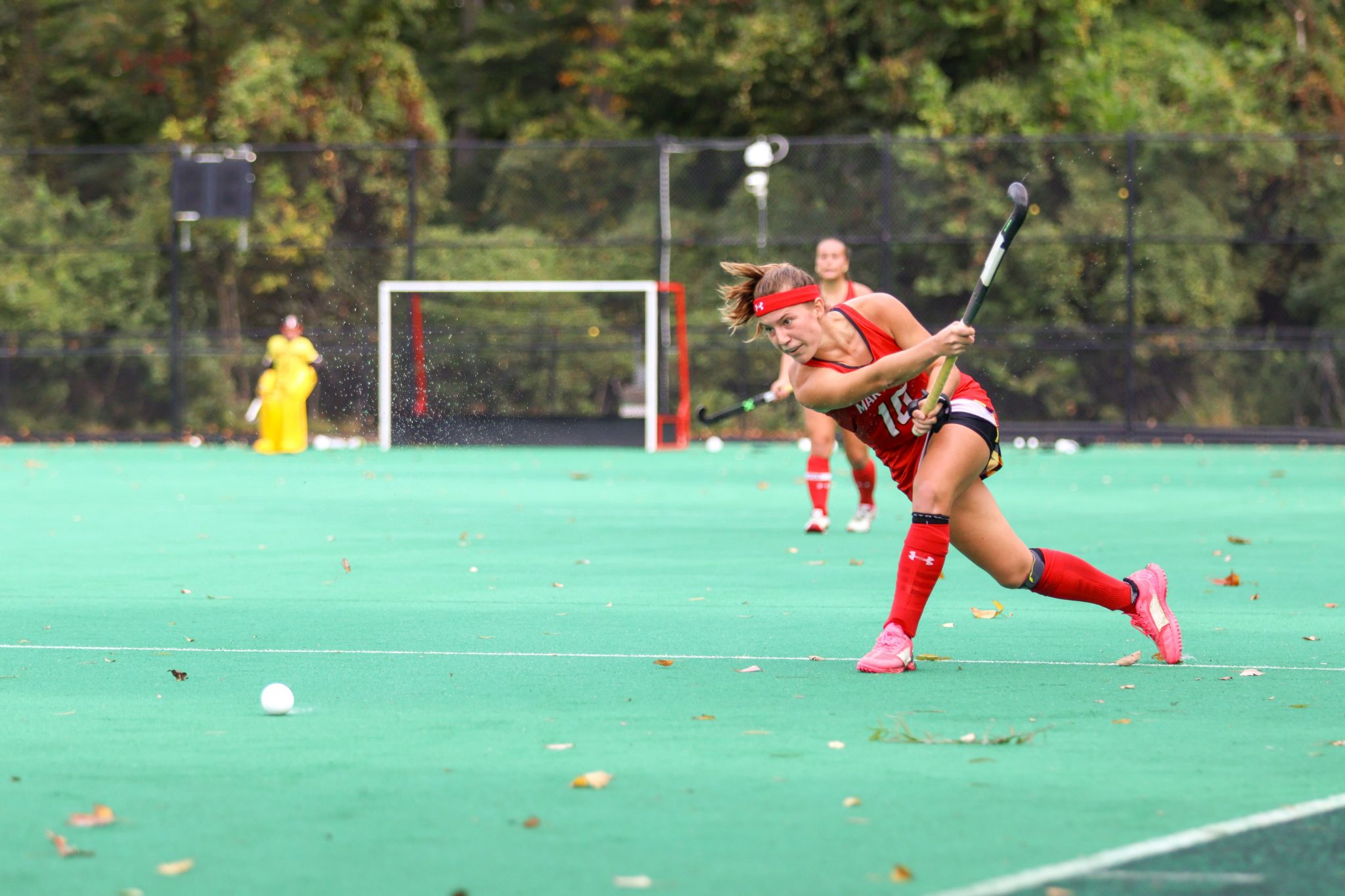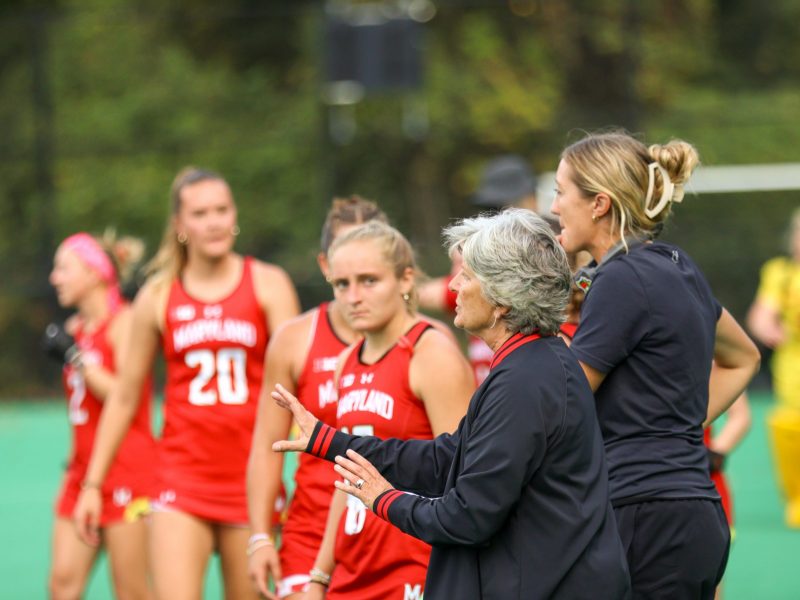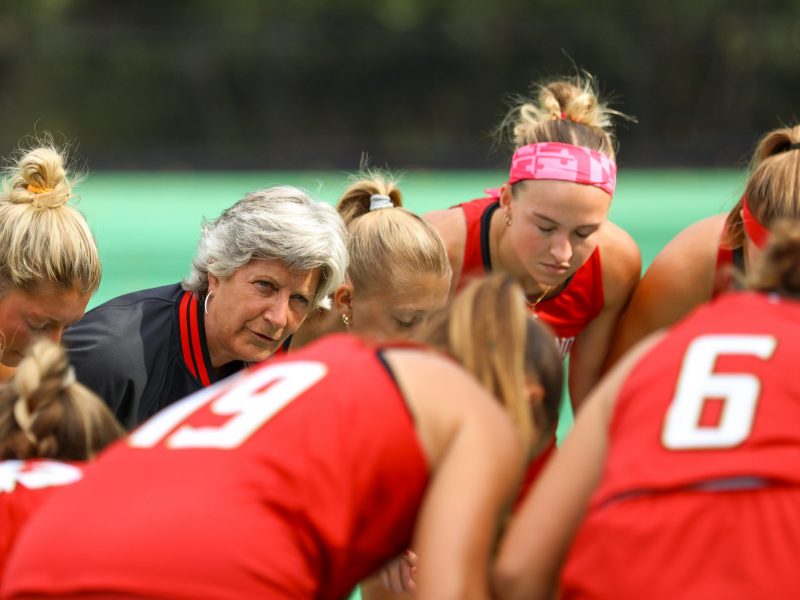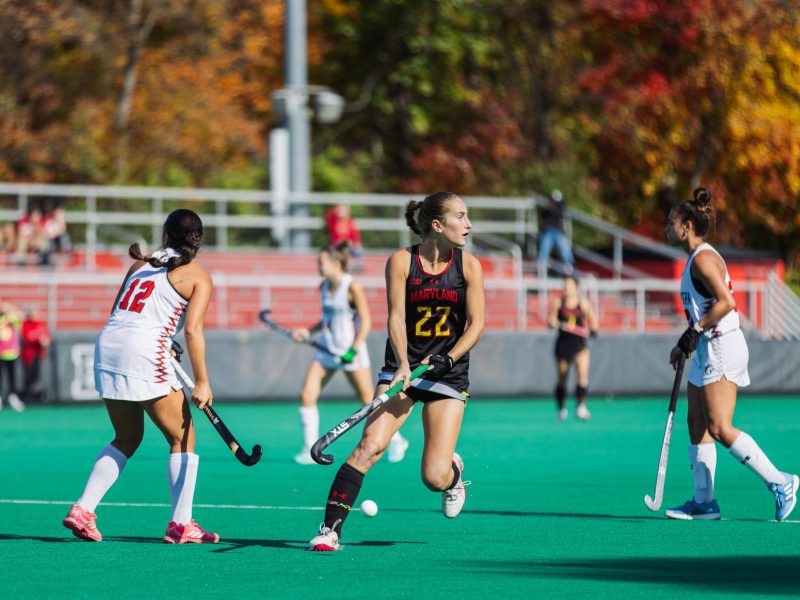Fleur Knopert has a picture in her room of her holding a field hockey stick with an American flag displayed on it. The senior defender’s dream was always to come to the United States and pursue the sport.
Knopert — a Netherlands native — accomplished that with Maryland field hockey as one of the team’s seven international players. The Terps’ roster also includes players from Australia, Germany and England, creating a sense of belonging among a diverse group.
“It’s a big change, but a very positive change,” sophomore midfielder Ella Fehr said. “Coming from club hockey in Germany, it feels so much more professional … especially at Maryland.”
Field hockey is a major spectacle overseas. Much like tailgating in the U.S., fans gather with friends and family to eat, drink and watch the game before hosting firework shows at night.
The experience overseas also intensely prepares players. Girls play with and against men and women outside of their age group.
“My teammates would be women with kids … and I’m still in high school,” senior defender Ericka Morris-Adams said. “That obviously elevates your game … especially when you play with the boys. It’s a different level.”
[Poor offensive play continues to hold Maryland field hockey back]
But the transition to the U.S. isn’t easy, especially beyond the field. Knopert noted that many players have their parents on the sideline, while she must FaceTime her parents to speak with them. She said it’s “nothing compared to having them in person.”
Childhood pictures, home flags and decorated lockers are common practices for international players. It can help them appreciate how far they’ve come to live out childhood dreams.
Adjusting to the time zone difference and getting acclimated to a new environment and culture is challenging when trying to stay in touch with her parents, but makes family trips more memorable, sophomore midfielder Annemijn Klijnhout said. She highlighted that parents’ trips are “extra special” and that their visits bring an added focus and motivation on the field.
“When you’re in the game and you do the anthem, you look to your parents and I think they’re also really proud to see you play here,” Klijnhout said.
Players are also forced to adjust to different play and communication styles in the U.S. They can’t always say phrases the way they want, but they still work meticulously to avoid language barrier issues.
The barriers can make for some lighthearted moments, too.
Americans know what it means when they are told to bring a speaker to practice. But Dutch players know it as a “music box” and don’t know what to carry with them, Klijnhout said.
[No. 1 Northwestern takes down No. 10 Maryland field hockey 2-1 in top-10 clash]
Another key difference is the pace, play style and tactics. Players go from smaller teams emphasizing collective attack strategies with a more give-and-go play style to fighting daily for a spot on a larger team, where coaches cater to players’ individual strengths.
“It’s such a big transition,” coach Missy Meharg said. “By the middle of the end of October, they’re starting to get their beat, and they’re starting to get the vibe and the cultural difference.”
Maryland is entering that part of its season right now, with its international players growing more comfortable. Families of domestic players also take international players under their wings and help bring the team closer, according to Morris-Adams.
The special bond among the seven international players comes through regular check-ins in their group chat, making sure everybody is prepared to travel and supporting each other through the shared journey of moving across the world to pursue the sport they love.
They share handshakes, cultural desserts and meals and teach their language to each other for fun as they build lifelong connections.
Maryland welcomes all cultures and inspires a sense of opportunity and belonging. Meharg has rostered many international players in the past, which makes players feel she is considerate of their lives and cares about the person as much as the player.
“She’s had many, many international players, so I feel like she’s very understanding of what it’s like for us, and she puts that into consideration,” Morris-Adams said. “She’s one of the most emotional coaches I think I’ve experienced … [She] really cares about you and your life.”



